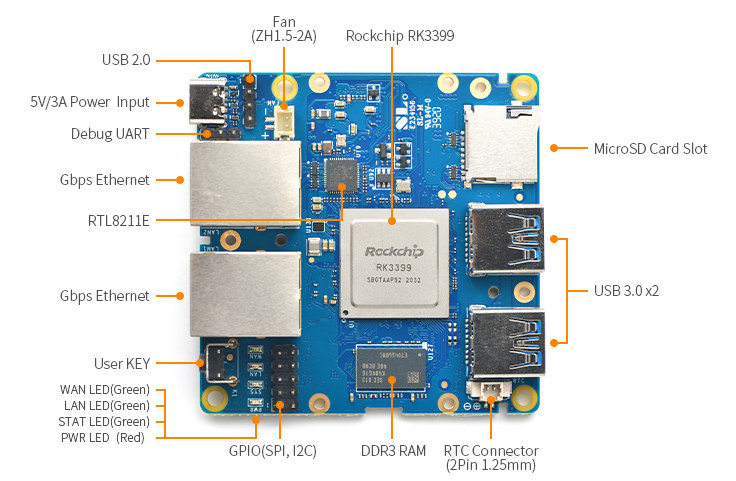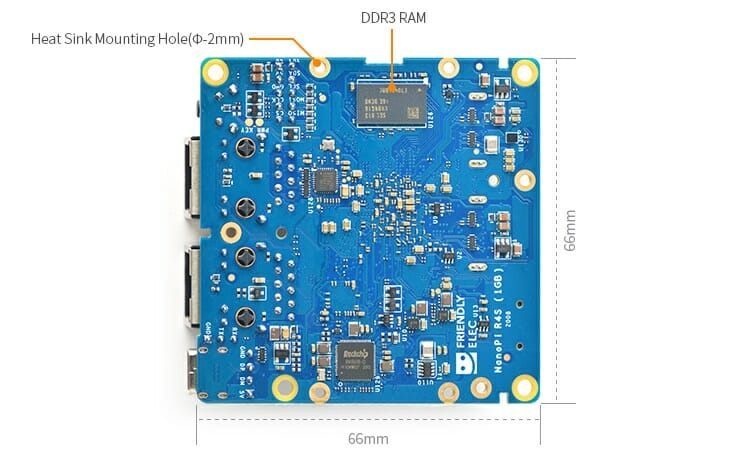We’ve seen several tiny ultra-cheap boards for headless applications over the last few years with products Orange Pi Zero Plus or NanoPi R2S which are usually based on 32-bit Cortex-A7 or low power 64-bit Cortex-A53 processors, coupled with up to 512MB to 2GB, and may have some limitations when it comes to Gigabit Ethernet and USB 3.0 speeds.
If you’d like something similar but more powerful, FriendlyELEC is working on NanoPi R4S headless SBC powered by a Rockchip RK3399 hexa-core Cortex-A72/A53 processor with up to 4GB RAM, dual Gigabit Ethernet, and two USB 3.0 ports.

- SoC – Rockchip RK3399 hexa-core processor with dual-Core Cortex-A72 up to 2.0GHz, quad-core Cortex-A53 up to 1.5GHz, Mali-T864 GPU with OpenGL ES1.1/2.0/3.0/3.1, OpenCL, DX11, and AFBC support, 4K VP9 and 4K 10-bit H265/H264 60fps video decoder
- System Memory – 1GB DDR3 or 4GB LPDDR4
- Storage – MicroSD card slot
- Networking – 2x GbE, including one native Gigabit Ethernet, and one PCIe Gigabit Ethernet
- USB – 2x USB 3.0 Type-A ports, USB 2.0 via 4-pin header
- Expansion – 2×5-pin header with 1x SPI, 1x I2C
- Debugging – 3-pin debug UART header
- Misc- 1x power LED, and 3x user LEDs (SYS, LAN, WAN), user button, 2-pin RTC battery connector, 5V fan connector
- Power Supply
- 5V/3A via USB-C connector or pin header
- RK808-D PMIC and independent DC/DC enabling DVFS, software power-down, RTC wake-up, system sleep mode
- Dimensions – 66 x 66 mm (8-layer PCB)
- Temperature Range – -20°C to 70°C

There’s no information about software, but based on past RK3399 products, FriendlyELEC should offer both Ubuntu and OpenWrt images, and typical use case would be routers, networked storage, IoT gateways, etc…
There’s no price information for NanoPi R4S headless SBC, but considering the $50 price tag for the aforementioned NanoPi M4 SBC and features, around $30-$35 for the 1GB RAM version, and $60-$65 for the 4GB RAM model might be in the right ballpark.

Jean-Luc started CNX Software in 2010 as a part-time endeavor, before quitting his job as a software engineering manager, and starting to write daily news, and reviews full time later in 2011.
Support CNX Software! Donate via cryptocurrencies, become a Patron on Patreon, or purchase goods on Amazon or Aliexpress




